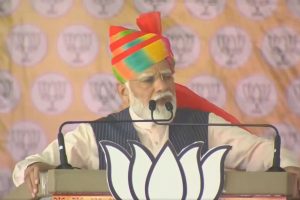Russian President Vladimir Putin’s endgame in Ukraine, at least in terms of military tactics, is becoming increasingly clear as a 40-mile long armed-to-the-teeth Russian convoy approaches the Ukrainian capital Kiev ~ and it’s straight out of the Israeli playbook in Lebanon 40 years ago.
The 1982 Lebanon War, termed Operation Peace for Galilee by Tel Aviv but widely referred to as The Invasion in much of the Arabic-speaking world, began with Israeli security forces entering South Lebanon, much as the Russians did eastern Ukraine. Then, the Israel Defence Forces succeeded in surrounding, after fierce resistance from the Palestine Liberation Organisation (PLO), the Lebanese capital Beirut, which is also what appears imminent in Ukraine with Russian troops now on the outskirts of Kiev.
PLO leaders and elements of the Syrian Army which were supporting it against the Israelis were trapped in Beirut and subjected to heavy bombardment. The chances are, military experts say, Ukrainian President Volodymyr Zelenskyy and his country’s leadership too may find themselves in a similar situation over the coming days given Russia’s overwhelming advantage in terms of numbers and weaponry.
The West’s unwillingness to enforce even a no-fly zone over Ukraine, much less put boots on the ground, makes this scenario even more likely. The PLO leadership trapped in Beirut negotiated safe passage from Lebanon with the aid of the American Special Envoy and left the country under the protection of international peacekeepers. A pro-Israel government was installed in Beirut and the Israelis withdrew to the areas claimed by the self-styled Free Lebanon State in the South (South Lebanon Security Belt).
Given what is happening on the ground in Ukraine, the Kremlin seems to have a similar plan ~ effecting a regime change in Kiev followed by withdrawal of Russian forces to East Ukraine including the self-declared republics in the breakaway regions of Donetsk and Luhansk which Moscow recognised last week as sovereign states.
The PLO under the chairmanship of Yasser Arafat had relocated its headquarters to Tripoli (Libya) by June 1982, and the Zelenskyy administration too will find many hosts in Europe if it comes to establishing a government-inexile, as it were. In the process, Moscow is expected to retain direct control of about one-third of the territory of Ukraine ~ drawing a vertical line on the map from the country’s second-largest city of Kharkiv in the North to Crimea in the South.
Kharkiv, which is currently under fierce attack from Russian forces, is also where pro-Russia Ukrainian President Viktor Yanukovych fled to in 2014 when protests toppled his government. But history has a strange way of repeating itself. By expelling the PLO, removing Syrian influence over Lebanon, and installing a pro-Israeli government in Beirut under President Bachir Gemayel, Israel hoped to sign a treaty which its Prime Minister Menachem Begin promised would give his country “forty years of peace”.
Instead, beginning with the assassination of Gemayel in September 1982, Lebanon went into a tailspin even as domestic opposition in Israel against the war became widespread. President Putin would be well-advised not to confuse achieving military targets with winning the war.











